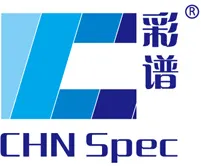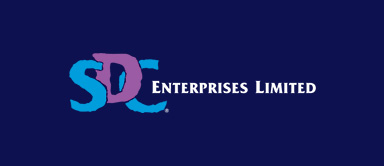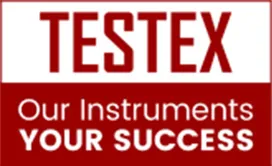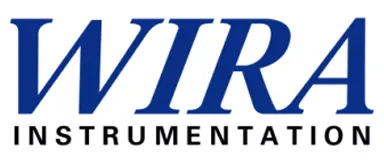How to Choose the Right Force Tester for Your Manufacturing Needs
In the fast-evolving landscape of manufacturing, the selection of the right force tester is crucial to ensure product quality and compliance with industry standards. According to recent market research by MarketsandMarkets, the global force testing market is expected to grow from $1.12 billion in 2022 to $1.54 billion by 2027, reflecting a CAGR of 6.4%. This growth is driven by increasing quality control measures and the necessity for precise measurement in production processes.

A suitable force tester not only enhances operational efficiency but also significantly reduces the risk of product failures, which can lead to costly recalls. By understanding the various types of force testers available and their specific benefits, manufacturers can make informed decisions that align with their production needs and ensure they meet rigorous quality assurance protocols.
Understanding the Different Types of Force Testers Available in the Market
When selecting a force tester for manufacturing needs, it's essential to understand the various types available on the market.
Generally, force testers can be categorized into several key types:
mechanical,
digital,
and hydraulic systems.
Mechanical force testers offer a simple yet effective solution for basic testing, relying on manual operation and analog displays. They are ideal for straightforward applications but may lack the precision needed for more complex requirements.
Digital force testers, on the other hand, incorporate advanced technology to provide accurate and repeatable results.
These testers are equipped with digital displays and often feature data logging capabilities, making them suitable for industries that require rigorous quality control and documentation.
Additionally, hydraulic force testers are designed for heavy-duty applications, utilizing fluid pressure to exert force, which is perfect for testing materials that demand a higher operational threshold.
Each type of force tester offers unique benefits, so identifying the right one will depend on specific manufacturing processes and testing requirements.
Key Features to Look for in a Force Tester for Manufacturing Applications
When selecting a force tester for manufacturing applications, it is essential to consider several key features that directly influence performance and measurement accuracy. One of the most critical attributes is the load capacity of the tester. According to a report by the International Society of Automation, over 80% of manufacturers require testing solutions capable of handling a broad range of load sizes, from a few grams to several tons. A versatile force tester not only caters to current manufacturing specifications but also adapts to future demands as production needs evolve.

Another significant feature is the tester's accuracy and precision. The same report indicates that inaccuracies in force measurement can lead to product defects, costing manufacturers up to 5% of their annual revenue. Therefore, investing in a force tester with a high-resolution load cell can ensure reliable data, reducing the likelihood of faulty products making it to market. Furthermore, user-friendly software integration for data analysis can enhance the value of the force tester by streamlining the quality control processes and enabling real-time monitoring. Selecting a force tester with these specifications is crucial to optimizing manufacturing efficiency and maintaining high-quality standards.
Evaluating Accuracy and Reliability in Force Testing Equipment
When selecting a force tester for your manufacturing needs, accuracy and reliability are paramount. Accuracy ensures that the force measurements are precise, which is critical for maintaining product quality and compliance with industry standards. To evaluate a force tester's accuracy, consider factors such as calibration frequency, measurement range, and the technology employed in the device. Look for testers that provide detailed specifications about their accuracy levels, often expressed as a percentage error.
Reliability is equally important as it determines the device's performance consistency over time. A reliable force tester minimizes downtime, thereby enhancing your operational efficiency. Be sure to examine user reviews and manufacturer warranties, as these can offer insights into the long-term performance of the equipment. Additionally, consider investing in equipment that allows for regular maintenance and updates, ensuring that your force tester adapts to evolving manufacturing needs.
**Tips:** Always request a demonstration of the force tester before purchase to understand its functionality better. Make sure to ask about support options and the availability of replacement parts, as these factors can significantly impact the longevity of your equipment. Lastly, prioritize force testers from reputable manufacturers known for high-quality standards, as this can often lead to better accuracy and reliability in the long run.

Budget Considerations: Finding Cost-Effective Force Testers
When selecting a force tester for your manufacturing needs, budget considerations play a critical role. Data from the Global Force Testing Market report indicates that the industry is expected to grow at a CAGR of 6.5% from 2021 to 2026, emphasizing the increasing reliance on precise force measurement in manufacturing processes. However, while advanced features might seem appealing, it’s essential to weigh those against your production requirements and budget constraints.
Cost-effective options are available without sacrificing quality for many manufacturers. Entry-level force testers start around $1,500, while mid-range models could be priced between $3,000 and $6,000, depending on the specifications and capabilities. According to a recent survey by Manufacturers Alliance, about 60% of smaller manufacturers reported budget constraints as their primary factor in equipment selection, leading them to opt for basic models that fulfill essential testing requirements. By assessing not only the upfront costs but also long-term operational efficiency, companies can find a suitable force tester that maximizes both value and performance.
How to Choose the Right Force Tester for Your Manufacturing Needs - Budget Considerations: Finding Cost-Effective Force Testers
| Tester Type | Force Measurement Range | Accuracy (% Full Scale) | Price Range (USD) | Ideal Application |
|---|---|---|---|---|
| Digital Force Gauge | 0-2000 N | ±0.5% | $150 - $400 | General Testing |
| Mechanical Force Tester | 0-500 N | ±1% | $80 - $250 | Quick Checks |
| Hydraulic Force Tester | 0-10000 N | ±1.5% | $500 - $900 | Heavy-Duty Applications |
| Electrical Force Tester | 0-5000 N | ±0.3% | $300 - $700 | Precision Testing |
| Universal Testing Machine | 0-30000 N | ±0.5% | $2000 - $5000 | Material Testing |
Choosing Between Manual and Automated Force Testers for Your Needs
When selecting a force tester for your manufacturing needs, one of the first decisions you face is choosing between manual and automated models.
Manual force testers are often more affordable and simpler to operate. They allow for hands-on engagement and can be ideal for small operations or specific tests that do not require high throughput. For companies prioritizing flexibility and control in their testing procedures, manual force testers can provide a practical solution without the burden of complex technology.
On the other hand, automated force testers offer a significant advantage in efficiency and precision. These systems can handle larger volumes of tests with minimal human intervention, making them suitable for high-demand manufacturing environments. By automating the testing process, manufacturers can achieve consistent and accurate results, reducing human error and increasing productivity. Additionally, automated testers can often be integrated with other quality control systems, streamlining the workflow and providing real-time data analysis. In deciding between the two, consider your production scale, budget, and the level of precision required in your testing processes.
Have Questions? We're Here to Help!
Give us a call at (864) 989-0566 or send us a message to discuss our testing equipment with an expert.












